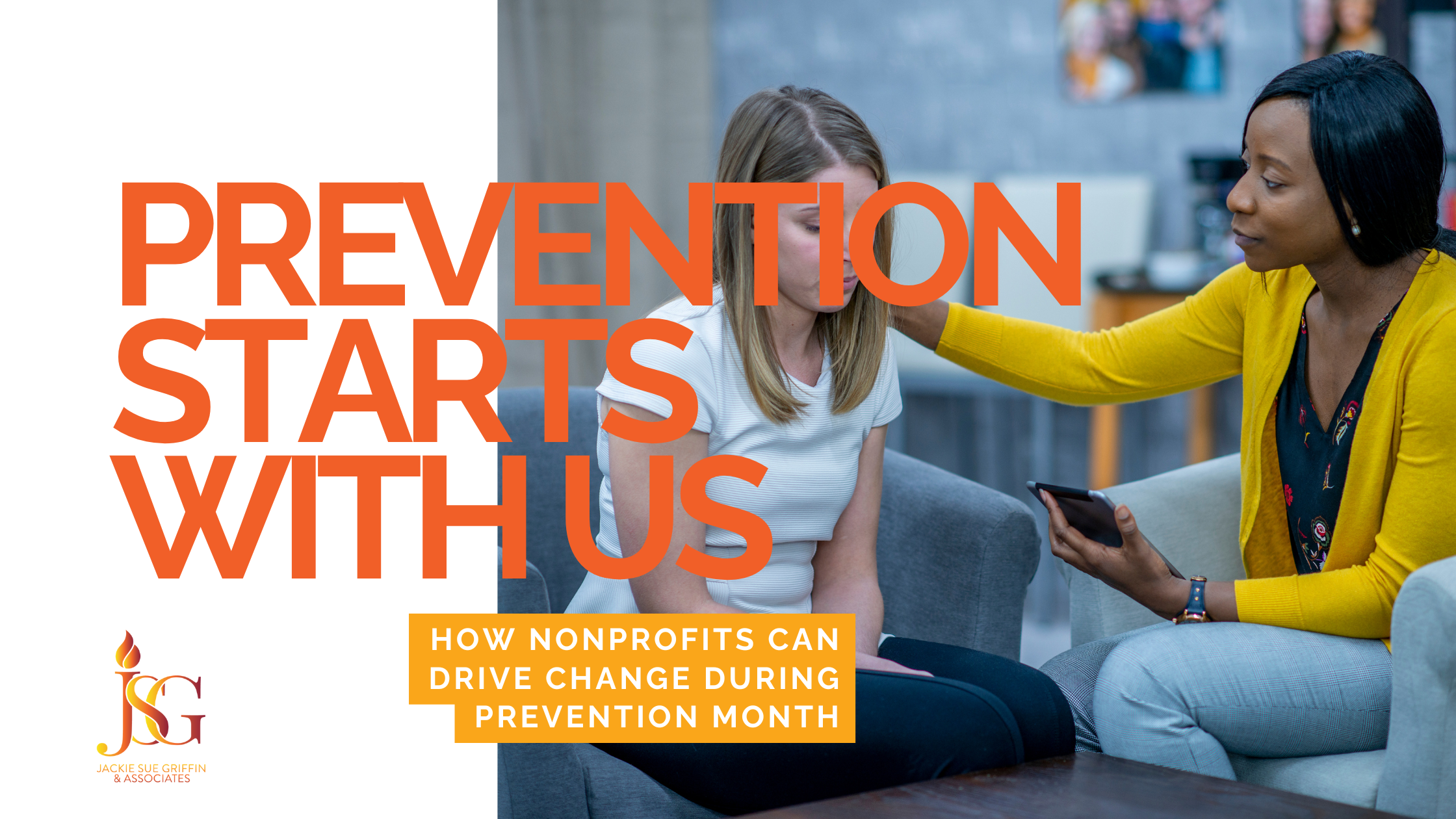
15 Oct Prevention Starts with Us: How Nonprofits Can Drive Change During Substance Abuse Prevention Month
October is National Substance Abuse Prevention Month, making it the perfect time to reflect on the vital role nonprofits play in promoting health and wellness across our communities. This month provides an important platform for nonprofits to showcase their impact and lead efforts in preventing substance use disorders.
Prevention is one of the most practical and impactful ways to build safer, healthier communities. Nonprofits, with their deep-rooted connections, are uniquely positioned to implement prevention programs that drive meaningful, long-lasting change. They have the ability to reach people where they are and foster positive community transformations from the ground up.
Supporting Families
One of the most effective ways nonprofits can support substance abuse prevention is by empowering families. As the first line of defense, families play a critical role in guiding their children and loved ones toward healthier life choices. By offering resources like parenting workshops, family counseling, and tools to identify early warning signs, nonprofits can strengthen families’ ability to take proactive steps. Helping caregivers build open, trusting dialogues with their children can lay the groundwork for better prevention at home.
Engaging the Community
Nonprofits can also make a significant impact by actively engaging with the broader community during Prevention Month. Hosting health fairs, workshops, or support groups provides people with valuable information on substance use prevention. Collaborating with schools, businesses, and local organizations to create educational programs empowers people to make healthier choices and builds a sense of shared responsibility for addressing substance use. Community involvement not only spreads awareness but strengthens the collective effort to prevent substance abuse.
Addressing Health Disparities
Many of the challenges related to substance use are tied to socioeconomic disparities and unequal access to healthcare. Nonprofits have the unique ability to close these gaps by focusing on underserved populations, ensuring everyone has access to prevention resources. By reducing health inequities, nonprofits can help foster stronger, more resilient communities where everyone has an equal opportunity to thrive.
Prioritizing Early Intervention
Early intervention is essential in preventing substance use disorders, especially among young people. The earlier someone starts using substances, the greater the risk of long-term addiction. By providing education and resources to youth and young adults, nonprofits can help dramatically reduce the likelihood of substance use problems down the line. Focusing on early prevention is a key strategy for building healthier futures.
Amplifying Community Voices
National Substance Abuse Prevention Month is also a time for nonprofits to advocate for policies that support prevention efforts. With their strong community connections and firsthand experience, nonprofits can amplify the voices of those most affected by substance use disorders. Together, they can push for meaningful systemic changes that benefit the entire community, driving progress toward healthier, more supportive environments.
In October and beyond, nonprofits play a pivotal role in fostering healthier communities by leading prevention efforts, supporting families, and championing systemic change. Through collaboration and community engagement, they can continue making a lasting difference in the fight against substance abuse.

No Comments